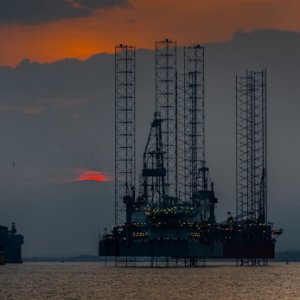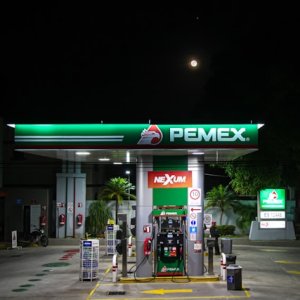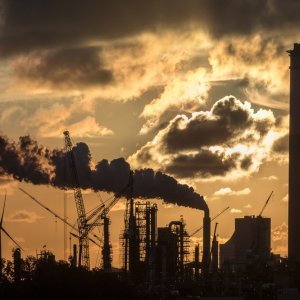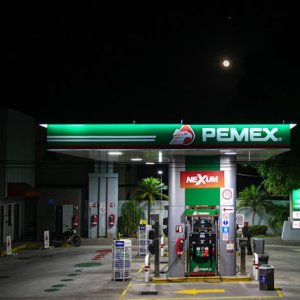We Need to Talk About Gas-Driven Development, or the Lack Thereof

STORY INLINE POST
What we ask influences how we think. When people from a particular town, city, or country begin to pose the same questions, eventually, they will set political policy. Political policy drives both domestic issues and international relations; it can actually change the world.
Policy-setting questions are often related to how development occurs, how it can be made more equitable, and how much growth-induced damage the planet can sustain. For example, some of today's critical inquiries concern how inflation affects a population and opportunity, how wars can still, sadly, influence global access, and the cost people must pay for food and energy.
In Mexico today, we face several essential questions about Mexico's place in the world. Firstly, how can our country take advantage of the current desire of the world’s largest economy, the US, to produce goods closer to home? How can Mexico take advantage of its unique geographic position, favored by its trade status via multiple free trade agreements, and what is increasingly being recognized worldwide as a highly skilled and well-trained workforce to benefit from the current geopolitical situation? Adding to the geopolitical context we live in, with a major war in Europe, and unstable relations between China and the US, Mexico is experiencing an unprecedented opportunity.
Numerous barriers may prevent or slow Mexico from taking full advantage of this moment in time. Reliable access to energy is certainly front and center among these challenges; however, social resistance to development exists primarily in areas where substantial inequality benefits from the US demand for more Mexican exports. This resistance is expressed in the interest to see political changes in a government that promises greater attention to overlooked areas in the country.
To a lesser extent, Mexico's northern and central industrialized areas benefit most directly from increased trade with the remainder of North America. This move toward nearshoring is one of the most significant changes affecting our global economy today. However, remote areas in southern and southeastern Mexico are reaping the least benefits from this moment. Currently, areas that are growing quicker are those that have good energy and excellent access to natural gas.
What is interesting is that existing pockets that have convincingly defied the trend of northern and central Mexico accumulating all wealth, such as Merida in the Yucatan Peninsula, have forged their identity despite having limited access to energy. Speak to anyone in Merida or Yucatan and they will certainly tell you that all they need to achieve more growth is to have access to clean, reliable energy.
While northern Mexico might benefit the most, there are still significant challenges, including infrastructure shortcomings, bottlenecks, and limited delivery capacity in much of the region. However, a significant amount of potential development is not achieved simply because, even in northern Mexico, as close as it is to the US border and rich in gas reserves, it is still hard to get gas for anything other than power generation in Mexico right now, let alone anything new. It is easy to forget in 2023 that most of Mexico’s gas infrastructure was built to satisfy US exports, not imports, despite the fact that more than 75% of gas consumed in Mexico is imported.
What is clear is that Mexico is at a crossroads now. Clear incentives must be designed to assist the rapid development of significant gas reserves and resources in Mexico. Also, industry actors must acknowledge that it takes more time to go from exploring for gas to producing it than it does for a liquid hydrocarbon resource. Much of this time is a matter of technicalities, but far too much of it results from regulations designed to slow down the ability of consumers to connect to the regional gas grid. I propose producers should be given privileged status to allow new gas to come online as quickly as possible. Furthermore, support should be provided for novel techniques, such as micro-LNG and virtual pipelines, to get small quantities of gas to micro-consumers currently consuming biomass or diesel. Mexico is taking steps to address some key issues, such as better access to gas in the southern regions, but more actions are required, and the government cannot be expected to solve all issues.
Why does this matter? Natural gas is the cleanest and most cost-effective energy source that is massively available and can quickly reduce emissions. Natural gas costs the equivalent of $15/bbl versus over $80/bbl for crude oil and well over $120/bbl for gasoline at current commodity prices. These costs mean that industrial consumers that consume significant amounts of energy and do not have access to natural gas cannot be competitive with those that do. If Mexico does not take quick and decisive action to ensure the provision of natural gas, the country may miss out on much of the benefit that may occur with the move to nearshoring, and what growth does occur will be confined to the north and central areas that have always seen development investment in the past. If Mexico, particularly its remote areas, misses out on this current opportunity, another of this magnitude may never come.
























